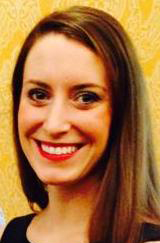
MOUNTAIN HOME, Idaho (BP) — I grew up in a denomination that readily affirms female leadership of the church, including female pastors. I never really gave it a second thought. These ladies were labeled “women of God,” and I did not question that moniker. I saw women delivering moving and charismatic messages. I genuinely felt the presence of God as I contemplated the words they shared.
As I grew into a young woman and began developing my own public speaking abilities, I was given the opportunity to speak to congregations as a “guest pastor.” I loved being able to create an outline, research the Word and share with the congregants the message I believed God laid on my heart. I have always relished researching the Bible. I thoroughly enjoy public speaking. I thought being in the pulpit made perfect sense. After all, I was good at it.
Time progressed, and I enrolled at Southwestern Baptist Theological Seminary to continue pursuit of my passion: Bible study. I had no real goals in striving toward a degree; I just liked learning about God. Southwestern’s curriculum so strictly adhered to the inerrancy of the Word of God that it was the obvious, if not ironic, avenue to my master of divinity.
One of my first classes was Spiritual Formation II. In this course, we discussed the basics of what it means to be a Christian. At the midpoint of the course, we began to discuss complementarianism and egalitarianism — two schools of thought regarding gender roles — and their applications for women in the church. Complementarianism holds that while men and women are of equal value, God has assigned them distinct roles in the family and the church. Egalitarianism asserts men and women may hold equal authority and leadership roles in the family and the church.
This was my first exposure to these concepts. I understood what they meant for marriage, and I supported that. Furthermore, I had known that many Baptists do not allow women to be pastors, but it was kind of an afterthought. When confronted with these concepts during the lecture, I felt (self-)righteous indignation at the seemingly outrageous claims being made by my professor. Did he not know God had gifted me, and many women like me, with public speaking abilities and a passion to teach the Bible? Did he not know I had seen people — men included — come to Christ after hearing a sermon delivered by a woman?
I emailed my professor and asked: “If a person gets saved after listening to a message from a female pastor, does that make them any less saved?” I was not trying to be rude or disrespectful with my query. I just needed answers. I was having something akin to an existential crisis. Is my future a lie? I just want to study the Bible and share what I have learned, I thought.
My professor replied, encouraging me to give to give him a call. I did. He was kind and not at all combative like I had assumed he would be. He reminded me God has power over any situation in which someone comes to faith in Him. Basically, I was pressed to recall the sovereignty of God and His omnipotence. That being said, he implored me to pray about my misgivings regarding Baptist teachings on women in ministry.
I heeded the professor’s advice, sort of. I ordered every book I could on women in ministry. I spoke to women in ministry. But neither of these avenues provided much comfort. I was at an impasse. Regardless of how I tried, no amount of fancy, “scholarly” exegesis provided the solace I sought. In turmoil, I approached the throne of God, which should have been the first thing I did. I poured out my hopes and dreams and desires to Him, telling Him:
“I know what I want to do with my gifts. I know where I see myself in five years. I know what I am passionate about. But what, oh God, do You want me to do? I am tired of trying to figure out my future. I am tired of trying to understand why You made me good at the things I am good at. I am tired of trying to make this happen. Mostly, I am tired of not trusting You.”
Flash forward to today. I am still in the process of learning what God has in store for me, but I know it is not to pastor a church. I am presently operating in a place that requires total reliance on God, especially since my future is uncertain. I do know I have talents and gifts that were given to me for His Kingdom purposes. And I further know He will never, ever instruct me to pursue any endeavor that contradicts His Word.
In the end, I found that my inner strife over my role in ministry was not so much about the plight of women. It was more about my lack of trust in a faithful God. I am reminded that if He wanted me to be a church pastor, He would have made me a man. But He did not. I trust God will use me, as a woman, to serve Him and others. And this service will not be in spite of my femininity.

















